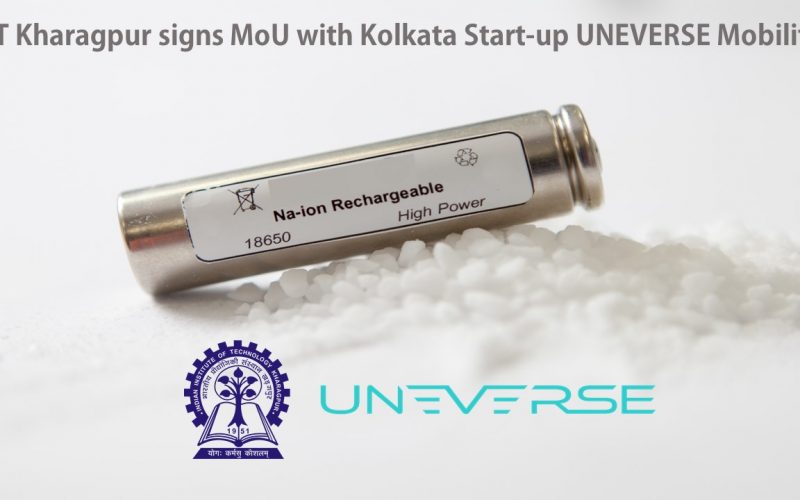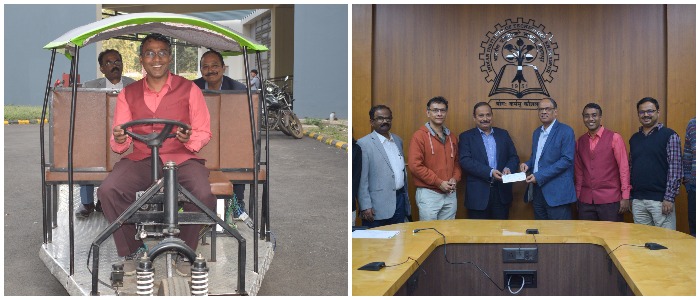
IIT Kharagpur Signs MoU with Uneverse Mobilty, a Kolkata based Startup, for the Development & Commercialization of Sodium Ion Batteries in India
These Cost-Effective Batteries Will Boost the Rapid Growth Envisaged For E-Vehicles Indian Institute of Technology Kharagpur signed a Memorandum of Understanding (MoU) with Uneverse Mobility Pvt Ltd, a Kolkata based startup focusing on next generation battery technology and e-mobility segments for commercialization and further development of the Sodium Ion technology. A team headed by Prof Amreesh Chandra from the Department of Physics at IIT Kharagpur have been working extensively on the development of Sodium-ion based energy solutions. They were amongst the first group of researchers in India who were funded by the Department of Science and Technology under their flagship…


